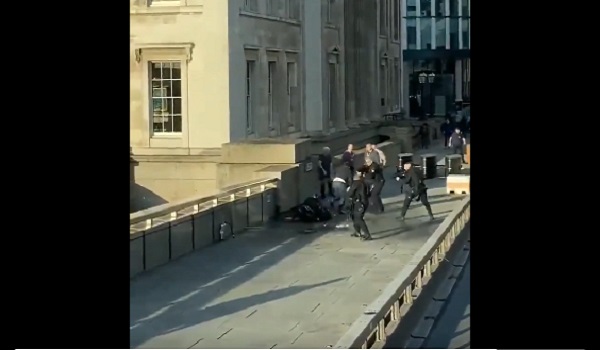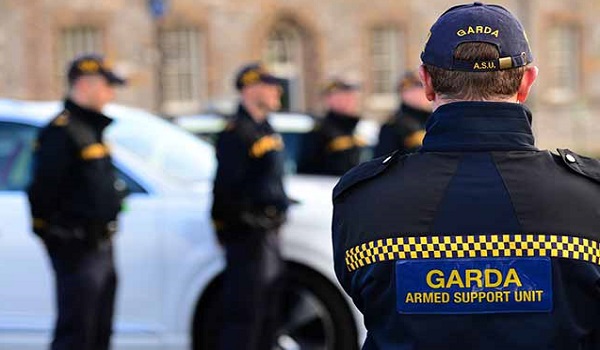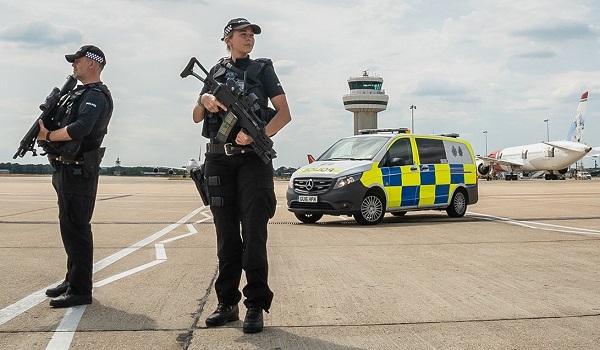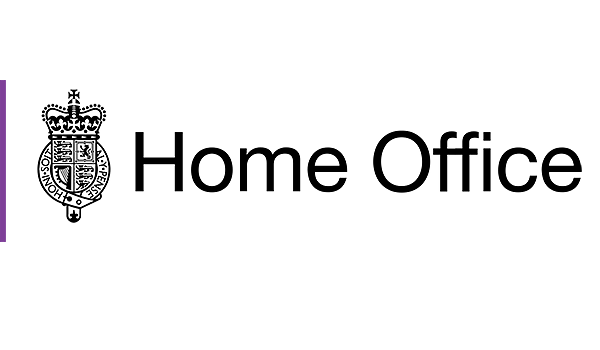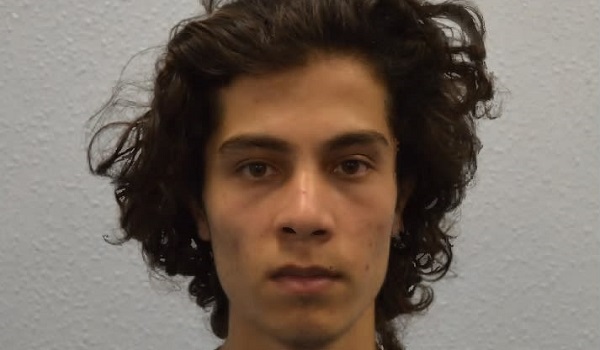Questions asked after London Bridge attacker found to be convicted terrorist
The perpetrator of the London Bridge terror attack had left prison less than 12 months ago after being told he should not be released until he was no longer a danger to the public.
Two people – a man and a woman – were stabbed to death and three others were seriously injured.
The victims had been attending a criminal justice event with the attacker, Usman Khan, 28, from Staffordshire.
Khan was on licence from prison having been given an indeterminate sentence in 2012 for planning to establish a camp in Pakistan-controlled Kashmir for training British Muslims in terrorism.
In sentencing Khan and eight other defendants, Judge Mr Justice Wilkie said they were “the more serious jihadists” and should not be released until they were no longer a threat to the public.
He added that their plans could also have resulted in atrocities in the UK.
However, the sentence was quashed in 2013 by the Appeals Court and replaced with a 16-year prison term. Under the law at the time of the offence, prisoners were eligible for release on licence at the half-way point of their sentence.
Metropolitan Police Service Assistant Commissioner Neil Basu said the investigation into Friday’s (November 29) attack continues at a pace but no-one else was being actively sought.
However, Mr Basu said fast time enquiries are being conducted to ensure that no other people were involved and that there is no outstanding threat to the public.
The attack began at just before 2pm on Friday at a conference called Learning Together taking place in Fishmongers Hall which is run by Cambridge University’s Criminology Department to help offenders reintegrate into society following their release from jail.
Khan, who had been fitted with a GPS monitoring tag, stabbed five people inside the building before being apprehended by members of the public on London Bridge.
Dramatic video footage showed him being chased by at least three men. One man used the spray from a fire extinguisher to subdue him while another used a five-foot long tusk from a Narwhal whale to keep him at bay. A third man threw him to the ground and pinned him down. One man was seen to carry a large knife to safety.
City of London Police and MPS officers attended and pulled the members of the public off the man before shooting him dead.
Mr Basu confirmed Khan had been wearing a suicide vest but said additional investigations found it did not contain any explosives.
Officers are carrying out searches at two addresses in Staffordshire.
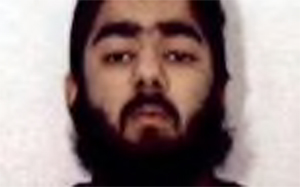
Mr Basu added: “This individual was known to authorities, having been convicted in 2012 for terrorism offences. He was released from prison in December 2018 on licence and clearly, a key line of enquiry now is to establish how he came to carry out this attack.”
Questions are likely to be asked about the decision to release Khan and how he was monitored.
The Parole Board said it had not been involved in his release, which had taken place “automatically on licence (as required by law) without ever being ever being referred to the Board”.
When released from prison he was monitored by an electronic GPS tag.
Prime Minister Boris Johnson said it is a mistake to allow serious and violent criminals out of prison early and “it is very important that we get out of that habit and that we enforce the appropriate sentences for dangerous criminals, especially for terrorists”.
And London Mayor Sadiq Khan told Sky News there are “big questions that need to be answered” about the attacker’s release.
He said: “One of the important tools judges had when it came to dealing with dangerous, convicted criminals – including convicted terrorists – was their ability to give an indeterminate sentence to protect the public, which was taken away from them by this government.
“What that meant was, in the past, a judge could say: ‘This person is so dangerous, he or she can’t be released until he can prove to us he’s no longer a danger to the public’.
“A second issue is, when people are released on licence, does the Ministry of Justice, does the probation service have the powers and resources to properly supervise people who are clearly dangerous?
“I think these questions will be asked about this individual to make sure we find out what happened here, but also there are wider lessons as well.”
MPS Commissioner Cressida Dick said she was “deeply saddened and angered that our city has again been targeted by terrorism”.
“My heart goes out to [the dead victims’] loved ones and to the three further injured victims who I understand are being treated in hospital, and of course to everybody who has been affected by today’s terrible and mindless events,” she added.
Members of the public were praised for their heroics.
Ms Dick said: “I also want to thank the members of the public who have helped, either by showing extraordinary courage by stepping in or by following the instructions they’ve been given by officers at the scene and in the area. This support from our public assists us more than you could know.”
She added: “The empty ideology of terror offers nothing but hatred and today I urge everyone to reject that. Ours is a great city because we embrace each other’s differences. We must emerge stronger still from this tragedy. In doing that we will ensure that the few who seek to divide us will never, ever succeed.”
Mr Johnson also paid tribute to the “extraordinary bravery of the members of the public who physically intervened to protect the lives of others”.
British Transport Police has since confirmed that one of the men involved in detained Khan is one of its plain-clothed officers.
Mr Johnson added: “They represent the very best of our country and I thank them on behalf of all of our country.
He said the UK will “never be cowed, divided or intimidated by this sort of attack and our British values will prevail.”


